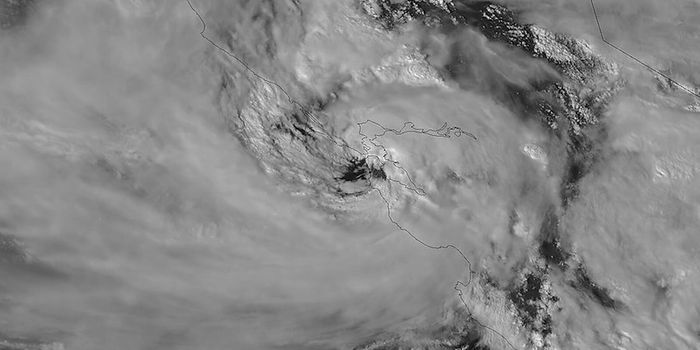Researchers Examine Potential Link Between Power Outages and Public Health
A recent study published in Nature Communications highlights the growing concern of weather-caused power outages and community health, which raises alarms on both intensifying climate change and an aging American power grid infrastructure.
A county-level map from the study showing data of 8+ hour power outages. White-shaded counties did not possess any reliable data. (Credit: University of Washington)
The study was started and co-authored by Dr. Joan Casey, who is an assistant professor in the Department of Environmental and Occupational Health Services at the University of Washington but began the study while a professor in Columbia University’s Mailman School of Public Health.
While living in northern California, Dr. Casey experienced several wildfires that resulted in frequent power outages that lasted for days at a time, and she found herself wondering how these outages impacted a community’s health.
For the study, the researchers examined power outage data across the United States between 2018 and 2020 and discovered four regions that are at the highest risk of prolonged blackouts which could exacerbate health inequities because of climate change—central Alabama, Louisiana, northern Michigan, and Arkansas.
“For me it was an inconvenience, but for some people it could be life-threatening,” said Dr. Casey. “If you had an uncle that had an electric heart pump, basically, his heart wouldn’t work without power. You could use a backup battery for eight hours, but after that, if you don’t have access to electricity, you have to go to the emergency room. This is a really dangerous situation.”
The study’s findings indicate a strong correlation between heavy precipitation and the probability of a outage, potentially up to five times greater, along with heavy winds from a tropical cyclone increasing the likelihood of a power outage by as high as 14 times. It was also found that when these two forces are combined, the likelihood of a power outage increases by as much as 52 times.
To narrow down the most vulnerable communities, the researchers included factors such as medical and socioeconomic standing, which resulted in bright clusters in counties of northern Michigan, central Alabama, Arkansas, and Louisiana. While these were determined to be at greater risk of power outages, the researchers also pointed to America’s unavoidable alterations in energy infrastructure that could give the public health in these regions the best chance of improvement.
“Any time we can identify another factor that we can intervene on to get closer to health equity, it’s exciting,” said Dr. Casey. “I think we’re going to see tremendous change, especially in the way our energy systems are set up, in the next couple decades. It’s this huge opportunity to get equity into every conversation and talk about what we’re going to do to make two decades from now look different from where we are.”
Given this study is the first of its kind to analyze power outages at the county level, the researchers stress that more steps need to be taken to by policymakers and legislatures to help vulnerable communities from the impacts of frequent power outages resulting from weather-related events.
Sources: Nature Communications, University of Washington
As always, keep doing science & keep looking up!









